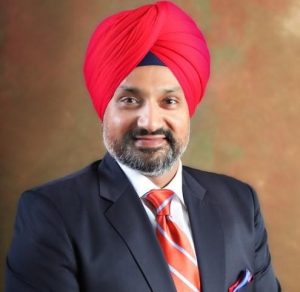
Sumer Johal is a seasoned leader with over 25 years of professional experience in building and managing technology-first organizations with high-performance teams across multiple industries and global geographies. Throughout his journey, Mr. Johal has led the disruptions of some of the world’s largest Industries in the Telecom, Consumer Retail, Financial Services, Semiconductor and Renewable Energy and Agriculture sectors, at both private- and publicly-traded companies, in the US and around the world.
Mr. Johal has spent the most recent decade of his journey in leading information technology and data analytics within agri- and rural-centric ecosystems. He is the CEO of Agralogics, a computational analytics company that provides field-bespoke analytics to agribusiness clients globally. He is also the Executive Director of AgStack – a project of the Linux Foundation (non-profit) where he leads the development of the world’s first digital infrastructure for food and agriculture.
Mr. Johal grew up in an agriculture family in Northern India (Punjab) and came to the US as a teenager. He earned a BS and MS in Computer Science and Electrical Engineering from the Massachusetts Institute of Technology (MIT) with a minor in economics. His MS thesis work focused on real-time data analysis and computer algorithms for decision-support of human / machine scheduling applications for semiconductor fabrication.
Mr. Johal lives in the United States in the San Francisco Bay Area with his wife and their two sons. He enjoys joining his sons in Martial Arts (Tae Kwon Do) and teaching Punjabi Folk Dance and Music (Bhangra) to youth in the community. He is an avid foodie and well-traveled, global citizen.
Machine learning models in agriculture suffer from a chronic lack of context-rich and digitally-indexed data that can be used by machine learning models for learning. The efficacy of such models, therefore, remains limited and unable to reach their full potential use and benefit. A potential solution to this problem is proposed in our approach at the Linux Foundation’s AgStack project. Such context-rich datasets can be produced and maintained as part of a major, pre-existing workflow of “collaboration” between and among farmers and agriculture extension professionals in agriculture. Such interaction can have the benefit of “tagging” of content by “experts” while automatically getting indexed by location, time and other attributes (e.g., language). Most importantly, such a rich repository – resulting from such a workflow – can be anonymized to protect privacy while still maintaining rich context clues for rapid and continuous machine learning. Finally, as part of an unique open-source licensing, such a repository can be made “participatory” and inclusive, particularly to help contributors and specifically those from under-privileged and marginalized communities.